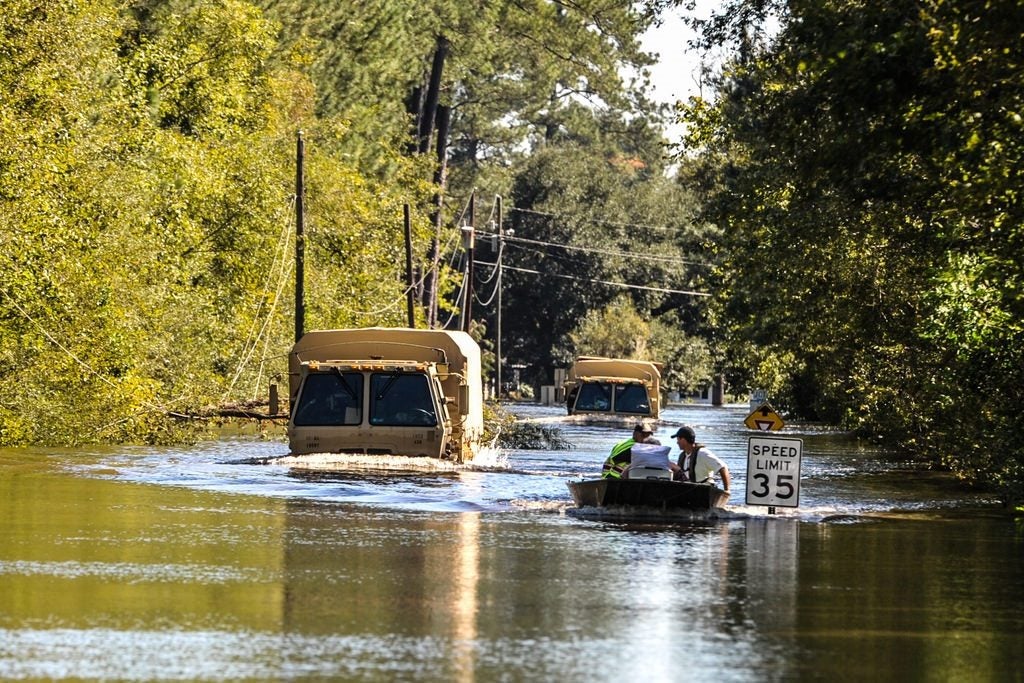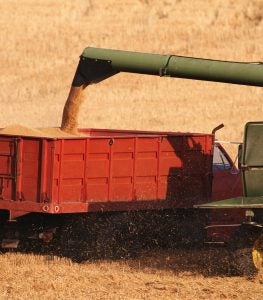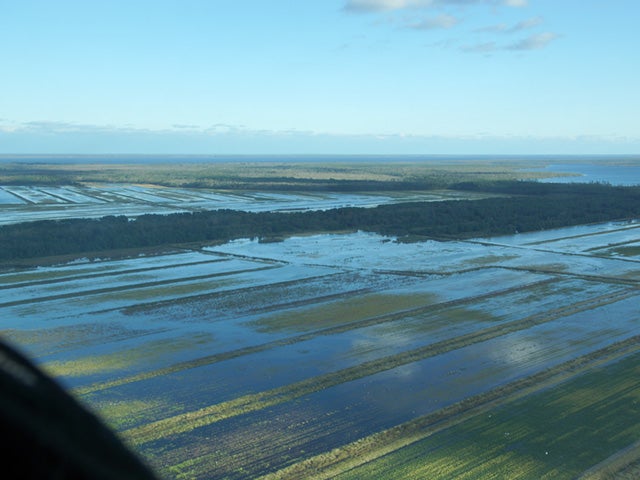Earlier this week, North Carolina Gov. Roy Cooper signed a proclamation recognizing the imperative to think anew about how the state lives with climate change. The governor emphasized the importance of building resilience as North Carolina communities continue to recover from an onslaught of devastating hurricanes and other extreme weather events.
Flooding has been the biggest problem this year, from headline-grabbing events like Hurricane Dorian, to intense, fast-forming thunderstorms like those we experienced in June, when 3 inches of rain fell per hour. In fact, June was the eighth wettest month on record since 1895.
September, however, was among the driest months in a decade, contributing to what experts call a “flash drought.” For farmers, flash droughts are problematic because they can cause crop loss, especially when crops have shallow roots after being planted during a wet month. While farmers were able to harvest some crops this fall, other harvests are at risk from the dry weather.
This pattern of extreme rain combined with flash drought is straining already beleaguered farmers and residents. Read More












